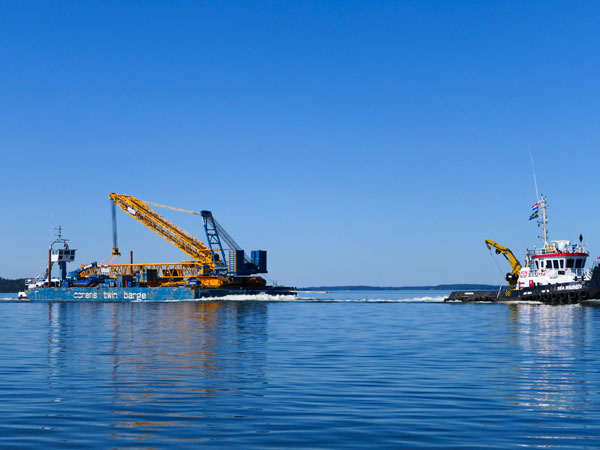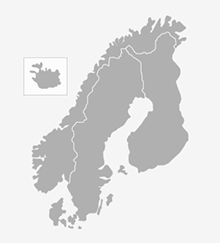A couple of years ago, VTI decided to increase its maritime research, and today about ten people at the institute work with related research in areas such as transport economics, logistics, the environment, and behavioural science.
For many years, VTI’s maritime research was quite modest and endured periods of decline. In the 1990s, Joakim Dahlman, now Research Director at VTI, and a Danish colleague drew up guidelines for human factors research in shipping. Yet when both went on to other jobs, VTI’s work in this field ground to a halt. From 2005–2007, Margareta Lützhöft continued to develop research in the same area.
In the 2010s, VTI started to conduct maritime research in transport economics and logistics, and a couple of years ago it took the big step forward. It was then that VTI decided to build up coherent maritime research within areas such as transport economics, logistics, environment, behavioural science, and ship propulsion.
“The stated desire to strengthen maritime research and improved opportunities to receive research funding has meant that we already have a much broader project portfolio in these areas,” says Joakim Dahlman.

Learning from each other
Maritime research has long existed in its own little bubble. Advanced technology such as driver assistance systems and anti-collision systems have existed in road traffic for a couple of decades, but in shipping the great digitalisation revolution is underway right now.
VTI’s strength lies in its ability to work across various modes of transport. Many people who research other modes of transport possess knowledge that is highly relevant to shipping, for example in areas such as simulators, environmental issues, and policy instruments.
“We’re looking for similarities between various modes of transport and how the different sectors can learn from each other. Take the example of eco-driving. We’ve come a long way in road traffic, but it’s only now that we’re starting to catch up on the shipping side,” says Inge Vierth, Senior Analyst at VTI.
Environment and climate are growing areas
National and international collaborations are important. Shipping is special because so many issues, such as policy instruments, have to be handled at the international level. But VTI also works with more local issues, such as noise emissions in ports.
“Environmental and climate issues have quickly become a major research area and will certainly become even larger. For example, noise emissions and emissions to water are relatively unexplored areas. We want our research to be closely guided by the Swedish transport policy goals,” says Inge Vierth.
Text: Johan Sievers/redakta
Translated by: Semantix AB
Contacts:

Joakim Dahlman
joakim.dahlman@vti.se
VTI, Swedish National Road and Transport Research Institute, Sweden

Inge Vierth
inge.vierth@vti.se
VTI, Swedish National Road and Transport Research Institute, Sweden






Follow us: